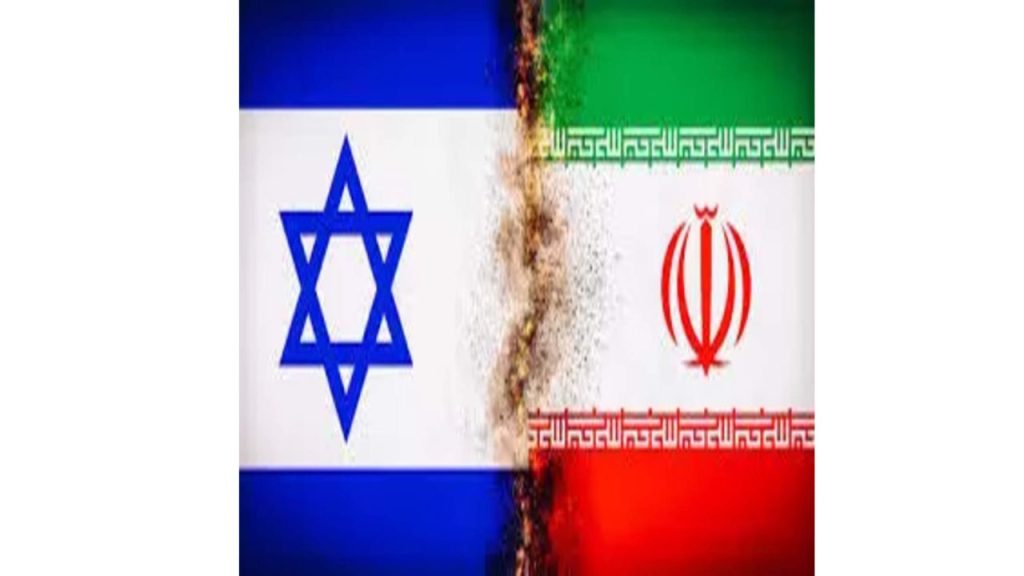How the battle between Iran and Israel may affect your investment portfolio. It has been repeatedly noted that geopolitical tensions significantly affect a range of asset classes, such as the price of equities, currencies, crude oil, and other commodities. When global concerns increase, investors typically realign their portfolios and gravitate toward assets that they believe to be safe havens.

How may it Affect Investors?
In apparent reprisal for a fatal attack on its consulate in Damascus, Syria, Iran launched over 300 projectiles at varying speeds and altitudes against Israel, including over 170 drones, cruise missiles, and over 120 ballistic missiles. The majority of Iran’s first-ever barrage of drones and missiles fired straight into Israel was effectively defused by Israel thanks to a powerful regional alliance and the efficient employment of cutting-edge defense systems designed to resist such assaults. However, this massive assault is a turning point that goes beyond a covert conflict between the two most formidable adversaries in the Middle East and another flashpoint in the Israeli-Hamas conflict.
The Hezbollah group in Lebanon and the Houthis in Yemen are two examples of foreign proxies that have traditionally been used to wage war against Iran. Three separate but closely connected components have made up this shadow war: Iran’s nuclear program, interruptions to maritime commerce, and the circumstances in Syria and Lebanon.
Undoubtedly, the Middle East has been engaged in a fierce proxy war for a considerable time, waged in cyberspace and on land, sea, and air. However, this disastrous development represents a significant deterioration of the Middle East’s geopolitical environment.
A feeling of proportion and balance is desperately needed. There is no indication of an impending third world war, at least not yet, nor a hint of the end of the world. However, Israel may launch retaliation and perhaps deterrence strikes in addition to a horizontal escalation.
Benny Gantz, a member of the Israeli war cabinet, declared unequivocally that “we will exact a price on Iran, in the manner and at the time that is right for us,” supporting this notion. Itamar Ben Gvir, minister of national security, declared that Israel should “go crazy,” while Bezalel Smotrich, minister of finance, called for a reaction that “resonates throughout the Middle East.” Fearsome, intimidating phrases this.
The rhetorical assault from Iran was as forceful. Iran’s President Ebrahim Raisi cautioned Israel not to respond in a “reckless” manner, or else it will encounter “a decisive and much stronger response.” The Gulf states, especially Saudi Arabia and the United Arab Emirates, are trying to stop this war from getting worse and destroying the whole Middle East and North Africa (MENA) area because of these unyielding positions.
The Way Forward:
As the situation rapidly develops, the US government’s stance is expected to play a significant role. In this scenario, a temporary cease-fire is unlikely, the release of Israeli hostages is improbable, and the prospect of achieving a two-state solution involving Israel and the Palestinian territories is growing increasingly improbable.
Given the intricacy of this multifaceted problem, Israel is presented with three choices. First, do not climb the escalator ladder since this attack has been successfully repelled. Second, carry out a counterattack. Thirdly, “all hell breaks loose” is the worst-case situation. It is difficult to predict which course of action will be taken, but there is constant pressure and advice from all sides to avoid escalating. Retaliation cannot be wholly excluded from the decision-making process, given the prevalent Israeli perception that Iran with nuclear weapons poses an existential danger to Israel.
Macroeconomic Consequences:
This saber-rattling has broad implications and repercussions for economies, industries, and regions, with temporary volatility in the bond and equities markets. Due to decreased business profitability and increased uncertainty, bond prices will decline, corporate borrowing costs will increase, oil prices will rise, and stock markets will decline. Long-term interest rates might stay high in the event of a protracted drop in the supply of oil and the ensuing spike in the price of crude oil. This would increase domestic inflation. The unsettling combination favors gold and the dollar as safe havens.
Sectoral Impact:
Oil-based industries, including cars, transportation, aircraft, paints, tires, cement, and chemicals, might be most affected by rising oil prices, which have a cascading macroeconomic impact across sectors and could lead to a sell-off. The prospect of conflict may upset the market, but ideally, oil’s supply and demand dynamics would remain unhindered.
NMDC, Titan, Dr Reddy’s and Lupin, Adani Ports, Sun Pharmaceutical, Kalyan Jewellers, and NMDC are among the Indian stocks with ties to Israel. Additionally, there may be adverse effects for oil marketing firms. The prices of railroad equities like IRCON, Jupiter Wagons, and RVNL suggest that the conflict may slow India’s plans to establish an economic corridor connecting the country with the Middle East and Europe.
Iran is a significant oil producer and exporter, producing almost 3 million barrels of crude oil per day (mb/d), or roughly 3% of the world’s total production. More significantly, 20% of the world’s crude oil supply passes through the Hormuz Strait, accounting for 60% of India’s crude supply. Because of this, a barrel of crude oil might increase from $91 to well over $100 (the Indian crude oil basket was trading below $85 last month).
The triple deficits of the Indian economy—the trade deficit, current account deficit, and fiscal deficit—would be adversely affected by this spike in oil prices.
The mood influences the capital market in addition to macroeconomic fundamentals, company and industry growth prospects, and other factors. Therefore, this battle may hurt BSE and Nifty levels. In contrast to common belief, however, much pessimism is uncalled for. It would be improper, for a thorough evaluation and perspective, to ignore the robustness and adaptability of the Indian economy.
Recognizable Dilemmas in India:
The strategic alliance that India has long maintained with both Iran and Israel is beset by operational and policy challenges. Israel has historically been a reliable ally in matters of security and defense. Iran has concerns about terrorism, the situation in Afghanistan, and the strategically important Chabahar port. Iran is a crucial supplier of crude oil. Storms are building, unpredictable times, and challenging days to come.
Read Also – 7 Steps For Sellers To Sell Their Home Without Any Hassle



